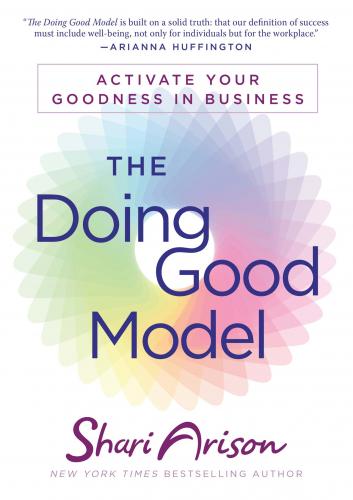One of our welders at the salt plant said, “I see now that I was a big spender. I have changed drastically. Why didn’t I think of this before?”
When I hear these kinds of stories firsthand, I am moved by the impact, realizing that the value of Financial Freedom has transformed the lives of so many people. These changes have occurred not only in the bank and in our other companies, but the circles have expanded through employees, their spouses, and clients alike. When I hear how people talk about how their lives have been changed, I see how genuinely touched and grateful they are, and I think, wow!
This all started out with a vision of a new approach I had for the banking industry almost ten years ago. It took years of perseverance and patience, finding the right people with professionalism and heart in order to implement this. I am grateful for the leadership of so many people within our companies to stay the course and to continue advancing and implementing this incredible vision. It is not easy to make such a fundamental shift within such a large corporation, and it is an ongoing process, but I am thrilled that we are not giving up, and there is more understanding and impact every day.
Now, I’d like to show how Financial Freedom has gone beyond the individual, permeating all parts of our businesses and organizations.
Financial Freedom in Action: From Personal to Organizational
For years, I’ve been thinking about how to drastically de-leverage the loans of my businesses while continuing to grow. I have been watching as people and corporations around the world have become too highly leveraged, taking on too much debt, and then I have seen what kind of effect it has when those debts cannot be paid back. It causes a domino effect of people losing jobs, suppliers going bankrupt, and other harsh economic consequences.
In 2013, Arison Investments wrapped up about ten months of a negotiation process for financing a mega-transaction worth several hundred million dollars. This complex deal was done with my wishes in mind, as the owner, seeing the bigger picture and making sure I could de-leverage quickly and efficiently while ensuring continued growth.
There was an event held between Arison Investments and the funding partners to mark the occasion of completing this agreement, which was specifically structured by my team the way that I wanted. At that event, speeches were given by our CEO and CFO that specifically referred to the values-based moral compass that we use. It was important to us that our new financial partners truly understood where we were coming from and, in this case, how our value of financial freedom was interpreted and applied within this mutually successful negotiation. We felt that by staying true to our values, we created a win-win partnership.
One of the comments from the CFO was, “When we talk about financial freedom—we are talking, simply put, about aligning between desires and capabilities. From our viewpoint, it is an existential value, and the foundation for any wise financial planning or conduct. I am convinced that each of you here have experienced it in action—whether through this loan, or the way it was structured, the negotiation process, the issues brought to the table and insisted upon, or just as longterm partners measuring our operations for the long run. A process like this is intriguing and profoundly interesting, even more so during such challenging times. We are happy to be the recipients of your trust and the faith that you have in us.”
He went on to further explain how the Arison Group team interpreted our Financial Freedom value, which you will remember is defined as “the freedom (and the desire) to choose, based on responsibility and understanding of the framework of abilities and economic possibilities at any given moment.”
To us, within this negotiation, these words meant two very important things. One was that we would secure only what we needed for this situation, and not more, even though more money was available and we were offered more at one point. We wanted to be responsible and knew how to keep within our limits.
The second important element to us was to set up a flexible mechanism for repayment and get agreement right from the start that everyone agreed to this flexibility, even though it was a rather new and complex arrangement. We wanted to be able to de-leverage this loan over time in a flexible way, a way that we knew made the most sense for our company, given all the economic realities we were facing, and our own abilities.
Конец ознакомительного фрагмента.
Текст предоставлен ООО «ЛитРес».
Прочитайте эту книгу целиком, купив полную легальную версию на ЛитРес.
Безопасно оплатить книгу можно банковской картой Visa, MasterCard, Maestro, со счета мобильного телефона, с платежного терминала, в салоне МТС или Связной, через PayPal, WebMoney, Яндекс.Деньги, QIWI Кошелек, бонусными картами или другим удобным Вам способом.
